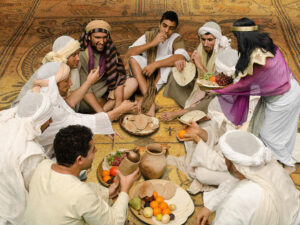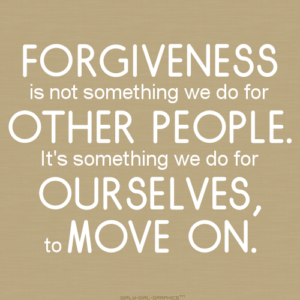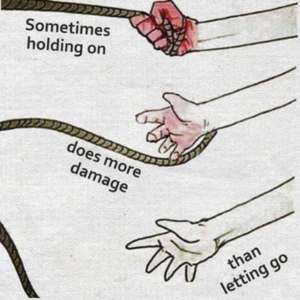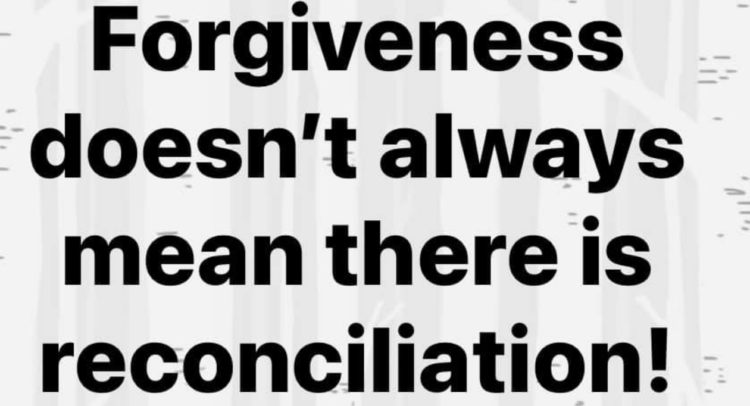Raboyseyee and Ladies,
Shoin, Chanukah is in our rear-view windows, and it’s time for some serious planning. For the first time in 13 years, the Ois will be plugging one -or maybe even two- Pesach programs. Here is the first:

Mazel tov wishes to Rabbi Yechezkel and Mrs. Rifki Freundlich -they, the newish rabbi and rebbetzin of Congregation Beth Sholom here in Lawrence, New York- upon the wedding -their first- of their beautiful daughter Racheli who will be marrying Rafi Kreitman, he the son of Robert and Dr. Riki Kreitman. Mazel tov to both extended families and may Racheli and Rafi merit to enjoy marital bliss for many decades to come. The Ois and eishes chayil will be in attendance later today and look forward to sharing in this simcha.
And mazel tov wishes to Michelle and Moish Bodek upon the upcoming wedding -this coming Sunday- of their beautiful daughter Rachel who will be marrying Gabriel Isaacs this coming Sunday. Mazel tov to both extended families. The Ois and eishes chayil will be in attendance and look forward to sharing in this simcha.
Happy 36th Anniversary to our friends Judith and Shlomo Gottesman!
Happy birthday to two friends – they themselves are best friends- who happen to share a birthday. We have been friends for just about 50 years. Happy birthday Barbara Rabinowitz and Faye Stern!
Reconciliation Without Forgiveness:
Is this concept feasible? We’ve all heard and read much about forgiveness without reconciliation, ober farkert? Can a broken relationships be repaired? Can we resume a relationship without ever having reconciled?
WARNING: BY THE TIME YOU GET DONE READING THIS WEEK’S REVIEW, YOU MIGHT BE WONDERING IF THE OIS HIT HIS HEAD AND IS SUFFERING FROM A CONCUSSION. NOT TO WORRY: IT’S JUST A HEAD COLD; HE’LL BE BACK TO HIMSELF NEXT WEEK.
Let’s get real: we all have people in our lives that we are angry with. These people have pissed us off and we’re done. We stop talking to them and shoin. The relationship -efsher years old and decades in the making- is over and out, dead and kaput. At times, we remain mad as hell even years later. Other times, we no longer remember with clarity why we stopped talking to them but the cold war continues. It’s now a tradition. It’s how real life is and how it’s been since Toirah times. By people, we include relatives (siblings, uncles, aunts, cousins), former partners, and very close friends, that pissed us off and angered us mamish. Some of us have at least one from each category; oy vey! At times, the situation taka calls for a clean break mamish; we no longer talk to that person. Then there are times, we continue and make believe all is good but the facts on the ground tell a different story. We’re still quite angry but circumstances dictate that we -at least outwardly- continue the now deeply wounded relationship. These are but two examples, there are many others in between the clean break and moving on. Ober, can relationships be full restored? And we begin with this topic why? Davka because it’s relevant in the parsha and even more so in our daily lives; seemingly always. More on this topic below but let us begin here.
Welcome to Parshas Vayichi as we say goodbye to Sefer Bereishis. We are 1/5 of the way through yet another cycle. This week we will be saying good-bye to the entire Yaakov Ovenu mishpocho (family) including Yoisef, our favorite Toirah character, and his brothers. He dies at the age of 110. Officially, we will only bid farewell to Yaakov and Yoisef; the death of the individual brothers is not recorded in the Toirah but come next week, the heylige Toirah will inform us that they and the entire generation of people were long dead. Then again, come next week’s parsha, and another 210 years will have passed. Yaakov’s passing and burial, though recorded in great detail and witnessed by his family and many Egyptian officers, might not have happened. It didn’t? How could that be? Says at least one medrish and the heylige Gemora (Taanis 5b) that Yaakov never died! Is he alive or dead? Ver veyst. We have previously covered this topic. Want more information? Go to archives at www.Oisvorfer.com.
No one seems to argue about Yoisef’s passing; he taka died and was embalmed. Another medrish will tell us that Eisav, whose passing is not recorded in our parsha or any other, and from whom we have not heard since his father’s levaya a number of weeks back, will also die this week. The medrish will also tell us that just prior to death he did tshuva (repented) and his head, neatly chopped off by Chushim one of Yaakov’s eyniklich (grandchildren) rolled into and is buried in the Meoras Hamachpela alongside our other forefathers and foremothers. Avrohom got real value for the shekels he paid. The good news: seemingly, repentance can still be achieved in the last seconds of life and that is of course good news, maybe givaldig for most of us. Sounds plausible. When are those last seconds? Ver veyst?
As mentioned, by the time we begin Sefer Shmois – next week mamish –Yaakov’s entire family and generation will all be gone. The Yiddin will already have been enslaved to Paroy, minuvil that he was, and we will be reading of their great suffering, the four expressions of redemption which incidentally was a boon to the wine business and the entire Pesach industry. It’s huge! Next week, we will also meet Moishe.
Shoin, speaking of Eisav’s last-minute tshuvah, let’s open -and maybe also close- with this topic. It’s in Parshas Vayichi -way towards the end- and only after Yaakov dies and is buried, that the brothers will talk amongst themselves and decide that they didn’t have proper closure with their brother Yoisef. It’s emes that they have been civil since Yoisef’s great reveal last week. They have been talking. Rashi tells us that Yoisef used to have them over for meals while Yaakov was still alive; isn’t that a barometer for friendship -even in our times? It is! Yoisef fed the family during the famine and zicher protected them over in Goishen. Many years have passed, 17 to be exact. And they finally figured out that with their father now gone, perhaps Yoisef might seek to exact revenge. You think? Who can blame Yosef if he did? And who would blame them for finally verbalizing the issue? Did they ever properly apologize and admit their wrongdoing? Did they do tshuva?
Let’s recall that in Vayigash -post revelation- all they did was withdraw, take a step back. Why? They were exposed, shocked and embarrassed. Rashi told us that Yoisef too was exposed for a brief moment but that for another time. Yoisef spoke and tried to comfort them. And it’s true that after he kissed them and cried, they were finally able to speak back to him. Rashi confirms that Yoisef and the brothers even broke bread together but that the invites stopped following the passing of Yaakov.

Ober, it’s seemingly also true that there was no proper closure to the entire traumatic event. Nowhere in the text, do we find that the holy brothers took responsibility for their actions, that they owned their great sin(s). Zicher you all recall what they did to their younger brother and the pain and anguish they caused their father. Life just went on. Thankfully, as Vayichi comes to a close, we will finally read some interesting text where the brothers – selfishly motivated perhaps by self-preservation, make the big move and say the right words. We have sinned, we are wrong, please forgive us. But did they actually say these words? Let’s read posik 17.
| So shall you say to Joseph, “Please, forgive now your brothers’ transgression and their sin, for they did evil to you. Now please forgive the transgression of the servants of the G-d of your father.” ‘ ” Joseph wept when they spoke to him. | יז.כֹּה תֹאמְרוּ לְיוֹסֵף אָנָּא שָׂא נָא פֶּשַׁע אַחֶיךָ וְחַטָּאתָם כִּי רָעָה גְמָלוּךָ וְעַתָּה שָׂא נָא לְפֶשַׁע עַבְדֵי אֱלֹהֵי אָבִיךָ וַיֵּבְךְּ יוֹסֵף בְּדַבְּרָם אֵלָיו: |
Ober, was it them who stated these words of apology to Yoisef’s face? Let’s read the beginning of that posik one more time. “So shall you say…” Who is the “you” in the sentence? It appears from the text of the heylige Toirah that they sent a messenger and instructed him -or it- to convey these words. And the question is azoy: did they themselves properly apologize? Is apologizing through a messenger acceptable? The good news: it does appear that Yoisef listened to the words of the messenger and forgave. Did he? And did they actually apologize? Or, was this their last scam? Was it at all emes that their father left instructions for Yoisef to forgive them? Let’s say this: if Yaakov left such instructions, they are not recorded anywhere. Grada, many family (and other) disputes run on for years because no one is ready to properly apologize. Why they didn’t utter these 16 words 17 years back, ver veyst. The good news: seemingly, it wasn’t too late.

A shaylo we can ask is this: Are there actions that remain unforgivable? Can a brother, relative, or friend, hurt you to the point of no return? Is it forever? Did the crime the brothers perpetrated rise to that level? Or, does every sincere, genuine, remorseful apology and appeal for forgiveness deserve to be granted? Was an apology via a messenger valid? Were the brothers sincere? Or, were they just worried about Yoisef’s revenge now that their father passed away? Shoin, lets us first examine the historical facts as the RBSO gave them to us in the heylige Toirah.
וַיִּרְא֤וּ אֲחֵֽי־יוֹסֵף֙ כִּי־מֵ֣ת אֲבִיהֶ֔ם וַיֹּ֣אמְר֔וּ ל֥וּ יִשְׂטְמֵ֖נוּ יוֹסֵ֑ף וְהָשֵׁ֤ב יָשִׁיב֙ לָ֔נוּ אֵ֚ת כׇּל־הָ֣רָעָ֔ה אֲשֶׁ֥ר גָּמַ֖לְנוּ אֹתֽוֹ׃
When Joseph’s brothers saw that their father was dead, they said, “What if Joseph still bears a grudge against us and pays us back for all the wrong that we did him!”
וַיְצַוּ֕וּ אֶל־יוֹסֵ֖ף לֵאמֹ֑ר אָבִ֣יךָ צִוָּ֔ה לִפְנֵ֥י מוֹת֖וֹ לֵאמֹֽר׃
So they sent this message to Joseph, “Before his death your father left this instruction:
כֹּֽה־תֹאמְר֣וּ לְיוֹסֵ֗ף אָ֣נָּ֡א שָׂ֣א נָ֠א פֶּ֣שַׁע אַחֶ֤יךָ וְחַטָּאתָם֙ כִּי־רָעָ֣ה גְמָל֔וּךָ וְעַתָּה֙ שָׂ֣א נָ֔א לְפֶ֥שַׁע עַבְדֵ֖י אֱלֹהֵ֣י אָבִ֑יךָ וַיֵּ֥בְךְּ יוֹסֵ֖ף בְּדַבְּרָ֥ם אֵלָֽיו׃
So shall you say to Joseph, ‘Forgive, I urge you, the offense and guilt of your brothers who treated you so harshly.’ Therefore, please forgive the offense of the servants of the God of your father’s [house].” And Joseph was in tears as they spoke to him.
וַיֵּלְכוּ֙ גַּם־אֶחָ֔יו וַֽיִּפְּל֖וּ לְפָנָ֑יו וַיֹּ֣אמְר֔וּ הִנֶּ֥נּֽוּ לְךָ֖ לַעֲבָדִֽים׃
His brothers went to him themselves, flung themselves before him, and said, “We are prepared to be your slaves.”
וַיֹּ֧אמֶר אֲלֵהֶ֛ם יוֹסֵ֖ף אַל־תִּירָ֑אוּ כִּ֛י הֲתַ֥חַת אֱלֹהִ֖ים אָֽנִי׃
But Joseph said to them, “Have no fear! Am I a substitute for God?
וְאַתֶּ֕ם חֲשַׁבְתֶּ֥ם עָלַ֖י רָעָ֑ה אֱלֹהִים֙ חֲשָׁבָ֣הּ לְטֹבָ֔ה לְמַ֗עַן עֲשֹׂ֛ה כַּיּ֥וֹם הַזֶּ֖ה לְהַחֲיֹ֥ת עַם־רָֽב׃
Besides, although you intended me harm, God intended it for good, so as to bring about the present result—the survival of many people.
וְעַתָּה֙ אַל־תִּירָ֔אוּ אָנֹכִ֛י אֲכַלְכֵּ֥ל אֶתְכֶ֖ם וְאֶֽת־טַפְּכֶ֑ם וַיְנַחֵ֣ם אוֹתָ֔ם וַיְדַבֵּ֖ר עַל־לִבָּֽם׃
And so, fear not. I will sustain you and your children (little ones). Thus he reassured them, speaking kindly to them.
Ok, what do we know? A few things. We know that Yaakov gave no such instructions; seemingly, the boys made that part up. From the exchange in the pisukim we also know that Yoisef’s brothers did not feel pardoned or forgiven when he first told them -in last week’s parsha- that the RBSO arranged everything, including their crime. They may have had meals together but they weren’t feeling very secure. Though they heard Yoisef lay all blame for what took place at the RBSO’s Hands, they were still frightened that he would exact revenge and tell them it was all the doing of the RBSO. Tit for tat? And for those reasons -in our parsha- following Yaakov’s passing and burial -without his protection- they did not feel safe with Yoisef. Why should they? What to do? They haven’t properly apologized! Ober, Yoisef was the man! He implies again that only the RBSO can decide whether to punish them. Yoisef will provide sustenance he assures them but not to worry; the meals were not coming with just deserts.
 Did the brothers ever mouth these words of apology directly to Yoisef? Seemingly not! They sent a messenger! Should forgiveness be granted through a messenger? It’s taka emes that last week Yoisef implied that only the RBSO can decide whether to punish the brothers. He repeats the same message; “…am I in place of the RBSO,” he asks? He gave them a pass by stating that only the RBSO was, and could be responsible for his brothers’ crimes. On the other hand, when the messenger -on their behalf- asks Yoisef to pardon them, does he? He does not. Instead, he says: “And now, don’t be afraid; I myself will provide for you and your little ones.” And he comforted them and he spoke upon their hearts. The bottom line: it does appear to the Ois that Yoisef comforted his brothers and persuaded them that he will continue to be responsible for their well-being. He did not however pardon them. He seemingly reconciled but did not offer forgiveness. Another bottom line: the road to reconciliation can -at times- be safely navigated even without forgiveness and or a pardon. How does all that work? The heylige Gemora offers some direction.
Did the brothers ever mouth these words of apology directly to Yoisef? Seemingly not! They sent a messenger! Should forgiveness be granted through a messenger? It’s taka emes that last week Yoisef implied that only the RBSO can decide whether to punish the brothers. He repeats the same message; “…am I in place of the RBSO,” he asks? He gave them a pass by stating that only the RBSO was, and could be responsible for his brothers’ crimes. On the other hand, when the messenger -on their behalf- asks Yoisef to pardon them, does he? He does not. Instead, he says: “And now, don’t be afraid; I myself will provide for you and your little ones.” And he comforted them and he spoke upon their hearts. The bottom line: it does appear to the Ois that Yoisef comforted his brothers and persuaded them that he will continue to be responsible for their well-being. He did not however pardon them. He seemingly reconciled but did not offer forgiveness. Another bottom line: the road to reconciliation can -at times- be safely navigated even without forgiveness and or a pardon. How does all that work? The heylige Gemora offers some direction.
Says the heylige Gemora (Rosh Hashono 17a) azoy: “Kol ha’maavir al midosav, ma’avirin lo kol p’shaav. Let’s do that in loose English: “….. With regard to whoever forgoes his reckonings with others for injustices done to him, the heavenly court in turn forgoes punishment for all his sins, as it is stated (Micha 7:18): “He bears sin and forgives transgression” נוֹשֵׂא עָוֹן וְעוֹבֵר עַל פֶּשַׁע״. לְמִי נוֹשֵׂא עָוֹן — לְמִי שֶׁעוֹבֵר עַל פֶּשַׁע. Whose sins does He bear? The sins of one who forgoes his reckonings with others for injustices committed against him.” For these people, the RBSO will look aside at all their sins. Says Rashi, this refers to someone who is not meticulous about measuring the pain others caused him/her and refrains from measuring, and lets it go.
Says the Ois: that’s a damn good deal and we should all be taking it! With this statement from the heylige Gemora we chap the formula for receiving forgiveness from the Heavenly court. The RBSO seemingly approaches us with the same attitude and philosophy we approach the people in our lives. He judges us with a mirror. If we are exacting, accounting and unforgiving to those around us, He is exacting, accounting and unforgiving of us. That cannot be good news for most of us who carry broiges (anger) around for years; not at all! Ober, if we instead choose to dismiss, minimize and ignore the slights, snubs and slurs that people have perpetrated against us, then the RBSO chooses to dismiss and ignore our slights and snubs of Him. Mamish gishmak!
Let’s also read the heylige Gemora (Yoma 23a) where we learn more about this ‘get out of hell pass. The Gemora responds that the prohibition against taking vengeance and bearing a grudge indeed applies to cases of personal anguish; however, actually, the scholar may keep resentment in his heart, though he should not act on it or remind the other person of his insulting behavior. Let’s call it the scholar exemption. The heylige Gemora asks azoy: But didn’t Rovo say: With regard to whoever forgoes his reckonings with others for injustices done to him, the heavenly court in turn forgoes punishment for all his sins? Answers the Gemora so gishmak azoy: Indeed, even a scholar who is insulted must forgive insults, but that is only in cases where his antagonist has sought to appease him, in which case he should allow himself to be appeased toward him. However, if no apology has been offered, the scholar should not forgive him, in order to uphold the honor of the Torah.
As an aside, it so happens that just last shabbis the Ois was upset with a chaver, ober after reviewing the Gemoras on the subject matter, and knowing that he too -from time to time- angers a few, decided to wash it away. To forget the incident like it never happened. Ershtens, it wasn’t egregious enough for a fight. Secondly, perhaps the Ois can get some extra credit with the RBSO. The bottom line: letting go, walking away, is taka a very tall order. Rovo chapped that concept and therefore was bold enough to teach that the RBSO will forgive those who forgo. Sadly, not too many follow Rovo in real life.

Yoisef carries the appellation “hatzadik, the righteous one. Many suggest he earned this title by rebuffing the advances of Mrs. Potiphar. Perhaps. Or, might we suggest he was deserving when he made peace with his brothers though they never apologized to this face? Yoisef was great davka because he moved on. He reconciled with his -at times at least- not so holy brothers though they never verbally apologized to his face. No flowers, text, WhatsApp, and no email; nothing. Most of us cannot attain this level of righteousness. We should however be more accepting if someone offers up an apology, explicitly or implicitly. We need to counter back with acceptance and forgiveness; close the matter and veyter gigangin (let’s move on). On the other hand, what to do in situations where a person wrongs you but will never admit nor apologize? Perhaps Yoisef provided the answer: while me may struggle to forgive them, Yoisef teaches us that we can reach a working relationship with them even if the relationship is not what it was. A full reconciliation requires that last step; without the apology, it’s incomplete. As an aside, this is an Ois original pshat. Gishmak!

Let’s close with chazak, chazak, vi’nischazake. Let us be strong, be strong, and let us be strengthened. Let us apologize and say we are sorry to those we either wronged and maybe even to those who think we wronged them. May we all be blessed with a greater ability to apologize, to forgive, to accept apologies when offered, and some form of reconciliation even without.

Finally, if someone finds the real Ois, send him back; this week’s review was quite heavy!
A gittin Shabbis-
The Heylige Oisvorfer Ruv
Yitz Grossman
